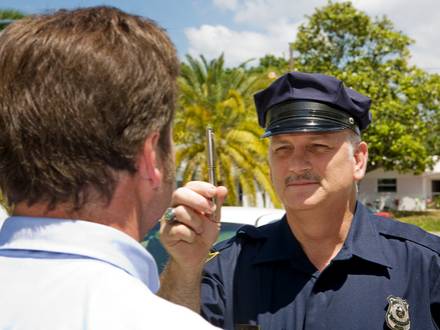What Are the Consequences of Refusing a Field Sobriety Test in Florida?
 When a police officer pulls someone over on suspicion of drunk driving in Florida, they may ask the driver to take field sobriety tests. These tests are used to check coordination and balance, which can be affected by alcohol or drugs. However, not all drivers feel comfortable taking them.
When a police officer pulls someone over on suspicion of drunk driving in Florida, they may ask the driver to take field sobriety tests. These tests are used to check coordination and balance, which can be affected by alcohol or drugs. However, not all drivers feel comfortable taking them.
Refusing field sobriety testing does not mean you will not be arrested, but you still have the chance to fight any charges against you. If you are facing a DUI charge after refusing a field sobriety test, a Broward County, FL DUI defense attorney can help you understand your rights and challenge the allegations.
Can You Refuse Field Sobriety Tests in Florida?
You can legally refuse to take a field sobriety test in Florida. These tests are voluntary and not required by law. An officer may ask you to perform tasks such as walking in a straight line, standing on one leg, or following an object with your eyes. You have the right to say no, and there are no direct penalties like license suspension for refusing a field sobriety test alone.
However, your refusal may lead the officer to arrest you if they believe they have enough other evidence of impairment. They might then request a breath, blood, or urine test under Florida’s implied consent law, which is found in Florida Statute § 316.1932. Refusing one of these chemical tests can result in a license suspension and other penalties.
Are Field Sobriety Test Results Reliable?
Many outside factors can affect how someone performs during field sobriety testing. Common reasons for unreliable results include:
-
Medical conditions: Issues like vertigo, joint problems, or neurological disorders can make it difficult to complete balance-related tasks.
-
Age or physical limitations: Older adults or individuals with limited mobility may struggle with tests like standing on one leg or walking heel-to-toe.
-
Nervousness: Anxiety or fear during a traffic stop can lead to mistakes that mimic signs of intoxication.
-
Unclear instructions: If the officer fails to give proper directions, the driver might not understand what is expected.
-
Environmental conditions: Poor lighting, traffic noise, uneven pavement, or bad weather can impact test performance.
-
Officer bias: Since officers are trained to look for signs of impairment, their judgment may be influenced before the test even begins.
Because of these flaws, field sobriety test results can be challenged in court. Under Florida Statute § 316.193, prosecutors still have the burden to prove beyond a reasonable doubt that the driver was impaired, regardless of whether the field test was taken or refused.
How Can You Fight a DUI After Refusing Field Sobriety Testing in Florida?
Even if you refused a field sobriety test, you still have a chance to fight the DUI charge. Prosecutors must prove impairment beyond a reasonable doubt, and without test results, that becomes more difficult. A defense attorney can examine whether the officer had probable cause and if your legal rights were upheld during the stop and arrest. Under Florida Statute § 901.15, an officer must have lawful grounds to arrest someone for a misdemeanor like DUI. If those grounds are weak, your case may be dismissed or reduced.
Contact a Fort Lauderdale, FL DUI Defense Attorney Today
If you have been charged with DUI in Florida, you need a legal advocate on your side. Attorney Hoffman at The Hoffman Firm has successfully defended many DUI cases, including two recent trials where his clients were found not guilty after less than 20 minutes of jury deliberation. These are the outcomes of a well-prepared defense. The experienced Broward County, FL DUI defense lawyer at The Hoffman Firm knows how to challenge weak evidence and expose flaws in the prosecution’s case. Call 954-524-4474 today to schedule your free consultation.
















